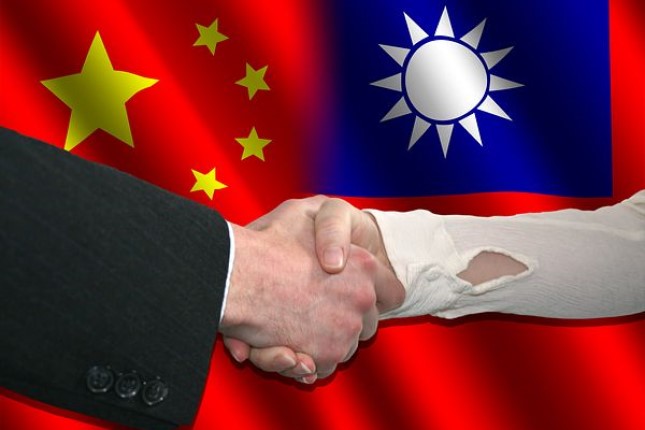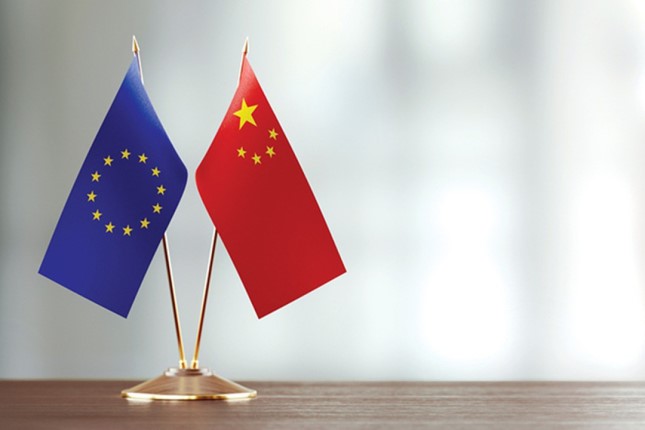It has been a decade since the PRISM scandal which enraged the world was exposed by Edward Snowden. Under the guise of so-called national interests, the US government and its related intelligence agencies utilize their technological and first-mover advantages to conduct cyber surveillance on and attack the rest of the world.
Relying on its hegemony in cyberspace, the US has used its cyber capabilities as one of its tools in hybrid warfare. Just like other tools such as economic sanctions, terrorist activities, and military intervention, the US has used cyberwarfare to interfere in other countries' internal affairs for political gain. To maintain its hegemony, the US has conducted "digital colonization" over other countries and committed various covert crimes, marking itself as a "surveillance empire," an "attacking empire," and a "bullying empire."
In the sixth installment of this series, we invite Lu Chuanying, director of the Research Center for International Cyberspace Governance under the Shanghai Institute for International Studies, to reveal how the US bullied the world through its digital hegemony, harming the national security of other countries while advancing its own interests and gaining access to information.
The US is the most powerful country in the digital space. However, this power is entirely built upon its own digital technological capabilities, including its hidden efforts to achieve global digital dominance.
The US government has openly stated in its cybersecurity strategy that US digital primacy is a pillar for the maintaining of its real-world hegemony. In reality, the US has indeed acted in this manner.
The US digital conquest operates under a certain level of stealth, making it difficult to detect. Moreover, it is challenging to assess the severe damage caused by these actions in terms of national security, user privacy, and the digital economic development of other countries.
Deconstructing digital conquest
We can dissect the US digital conquest into five distinct aspects, which include the use of mass surveillance to harvest global data, the promotion of public the domain concept to occupy the global digital market, the imposition of unilateralism to resist the establishment of multilateral rules in cyberspace, the monopolization of the critical infrastructure of the global internet for private gains, and the promotion of a militarized cyberspace through offensive cyber operations.
By examining these five aspects, we can expose how the US places its hegemonic interests above the security and development of the global digital network, causing significant harm to the security and prosperity of the global cyberspace.
This year marks the 10th anniversary of the Edward Snowden revelation, but the US has not decelerated its efforts in global surveillance, posing risks to national security and cybersecurity of various countries.
The PRISM scandal fully exposed how the US views cybersecurity and cyberspace. From a cybersecurity perspective, the US has established an omnipresent surveillance empire, clearly demonstrating its flawed understanding of cybersecurity. In pursuit of its own security, the US would also not hesitate to sacrifice the cybersecurity of other nations. Its actions not only harm the national security of other countries but also worsen the overall ecosystem of global cybersecurity, with all nations paying the ultimate price.
From the perspective of cyberspace, the US disregards the cyber sovereignty of other countries and willfully invades their cyberspace, breaking the stability and integrity of the cyberspace.
Although the PRISM scandal occurred a decade ago, the US has not changed course since. On the contrary, it has intensified its global surveillance efforts.
Behind these intensified efforts lie powerful interests driving said actions, as massive surveillance helps the US to obtain valuable intelligence information globally, which serves its global strategic decision-making process.
According to media reports, the US National Security Agency (NSA), responsible for signals intelligence, collects a vast amount of intelligence through online means and provides it for the US President's reference. For a considerable period of time, cyber intelligence accounted for more than half of the President's daily briefings.
Therefore, despite facing global opposition, the US continues to operate autonomously, leveraging its advanced cybersecurity technology capabilities to maintain global surveillance.
Obstructing global rules
The US not only conducts global surveillance but also attempts to psychologically undermine resistance from other countries.
To achieve this, the US academic community has designed a set of theories on the public domain in cyberspace, arguing that cyberspace is a so-called global public good and no country can exercise sovereignty over it, as doing so would violate the freedom of cyberspace.
However, in practice, the US does this to eliminate obstacles to its digital conquest on an ideological level.
Many countries initially accepted the US theory of the public domain and disregarded cyberspace regulations. Eventually, they discovered that, not only did the US government extensively engage in cyberspace surveillance, but US internet companies also penetrated their markets rapidly, occupying the markets with their scale advantage.
By the time the European Union caught on to this issue, its domestic industries had already been replaced by US counterparts, and it could no longer escape reliance on US internet companies.
In the past, the EU, recognizing the severity of the problem, introduced the concepts of data sovereignty, digital sovereignty, and technological sovereignty in an attempt to strengthen its control over cyberspace and safeguard its security and development rights in cyberspace.
However, this approach was too late, as US companies had completely dominated the internet industry within their borders, making it difficult for the EU to nurture competitive internet companies. Merely enhancing cyber sovereignty is insufficient to counter US digital conquest.
To address the security challenges posed by the US' massive cyber surveillance, the international community has intensified the process of formulating rules for cyberspace governance. The international governance process represented by the UN Group of Governmental Experts (UNGGE) on Developments in the Field of Information and Telecommunications in the Context of International Security has entered a substantive stage.
However, the US believes that the formulation of these rules affects its cyber surveillance actions and has taken various measures to impede the process of rule-making - either it obstructs the attainment of provisions with substantive compulsory force, or strongly insists on incorporating offensive content into the provisions.
US government representatives, for example, claimed that if the UNGGE could not include provisions allowing the US to exercise its right to cyber self-defense in the outcome report, the US would block the report's release. Ultimately, under US opposition, the fifth session of the UNGGE in 2017 failed to publish a consensus report, signifying the failure of international efforts.
Throughout the process of formulating global rules for cyberspace, the US has never played a leading role, but rather has had a negative impact on efforts. This stands in stark contrast to its proactive efforts to dominate and control other areas. The underlying reason is that the lack of rules in cyberspace is more in line with US interests, and that's why the US has sought to hinder the establishment of rules in cyberspace.
Currently, many countries have recognized this issue and are actively promoting the process of establishing international rules for cyberspace. For example, the EU has formulated the General Data Protection Regulation (GDPR) to ensure data security within its borders and enhance personal information protection. Other countries have followed suit, resulting in the "Brussels Effect." Countries like Singapore have actively implemented the norms for responsible state behavior in cyberspace as set by the UNGGE and incorporated them into their cybersecurity laws, thereby promoting the effectiveness of these norms.
Maintaining digital hegemony
Why is the US able to extend its online surveillance in cyberspace? This is inseparable from its unique position in cyberspace. The US has three unique advantages in cyberspace. First, it is located at the center of the Internet. There are 13 root servers globally, 10 of which are located within the US. These root servers are crucial for global Internet access and responsible for global domain name resolution.
Milton Mueller, an internationally prominent scholar specializing in the political economy of information and communication, pointed out that controlling the root means controlling the entire cyberspace. The US monopolizes 10 root servers, and the remaining three are under the control of US allies.
In this scenario, a vast amount of access information is controlled by the US. The US can block other countries' access to the Internet at any time. For example, in 2021, the US Department of Justice (Federal Bureau of Investigation) and the US Department of Commerce (Bureau of Industry and Security) shut down domain name resolutions for dozens of Iranian websites, including the English news channel Press TV, redirecting traffic to US government-controlled sites. This resulted in Iran losing a significant number of channels for international information dissemination within a short period. Therefore, it is evident that the US can freely control other countries' domain names.
Moreover, the US virtually controls the global network of undersea cables, which are the primary infrastructure for intercontinental information exchange. By controlling undersea cables, one can largely control data and information flowing through them. Edward Snowden exposed the fact that the US conducts surveillance on critical undersea cables.
In order to enhance control over undersea cables, the US has also prevented companies from other countries from participating in their installation. For example, the US government has pressured companies not to involve Huawei in undersea cable projects.
The third advantage possessed by the US is that almost all of the world's most important Internet companies are American. Global influential Internet companies like Apple, Microsoft, Google, Facebook, Twitter, and others are headquartered in the US. These Internet companies have significant supra-national sovereignty, further expanding the US' control in cyberspace.
In the case of Edward Snowden, it was revealed that companies like Microsoft, Google, and Facebook, which claim independence, have cooperation mechanisms with the NSA and provide user information to US intelligence agencies. Although these Internet companies took measures to distance themselves from the US government after the revelations, it is challenging to sever fundamental ties.
Lastly, to further its conquest in the digital domain, it is undeniable that the US is militarizing cyberspace. The US was the first country to establish a Cyber Command, and after decades of development, its cyber military strength is more advanced than that of other countries. In this context, expanding outward becomes a primary task for the US cyber forces.
In recent years, the US Cyber Command has advocated for a series of offensive cyber policies, such as Persistent Engagement, Defense Forward, and Hunt Forward. These policies emphasize breaking the norm of cyberspace sovereignty and conducting offensive cyber operations against adversary nations to prevent cyberattacks. Amid the Russia-Ukraine conflict, the US Cyber Command has also publicly intervened in the conflict, providing significant cyber military assistance to one side. Additionally, the US has been actively promoting cyber military exercises with NATO and allied countries, expanding its cyber military capabilities beyond its own borders.
The core of US digital colonialism is no longer physical conquest but the establishment of its dominance in digital technology worldwide to maintain its hegemony.
The US promotes a so-called rules-based order in the field of information and communication technology, but it does not adhere to these rules itself, revealing its hypocrisy and bullying behavior.
Meanwhile, US digital hegemony has inflicted severe harm on global cyberspace security and the national security of other countries. The international community should pay great attention to this new form of digital colonialism and, at the domestic level, respond by enhancing digital sovereignty and cyber sovereignty. At the international level, there is a need to strengthen the construction of an equal and fair rules-based framework for cyberspace against such hegemony.
Photo: Edward Snowden is seen onscreen while speaking from Russia to the audience during an interview on November 4, 2019 in Lisbon, Portugal © VCG.
Source: The Global Times.































